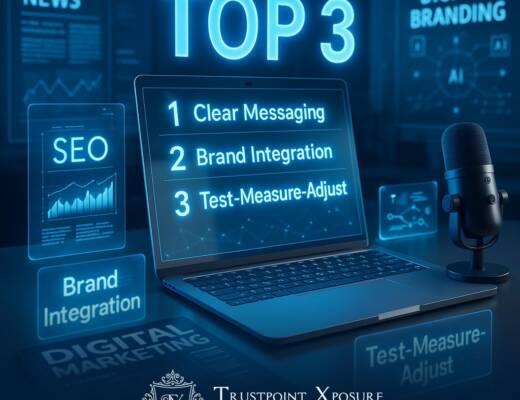Customer Relationship Management (CRM) is essentially a business philosophy. It can also be a series of relationship marketing strategies that put customers at the center. For a working
definition of CRM, we could say that CRM is best understood as the strategy and software companies need to become aware of customer needs.
Here are five ways that the effective implementation of CRM helps businesses succeed.
1. CRM as a Strategy and Management Model
A company using CRM as a management model seeks to differentiate itself from competitors. It uses relevant information to approach customers while increasing its value proposition.
CRM is about learning from our clients, working for them, and placing them at the center of our strategy. A well-developed CRM is not just a database repository, nor just a directory. An effective CRM represents business intelligence for drawing conclusions and making decisions for the betterment of the company.
CRM is a way of developing the company using the knowledge provided by customers. It helps customers differentiate and get exactly what they are expecting. Understood accurately, CRM is synonymous with customer loyalty, a deeper understanding of market niches, and overall business development.
2. Effective Implementation Allows for More Collaborative Workflows
A
well-deployed CRM system allows for more effective communication between different interlocutors or departments within a company. With CRM, all interactions — calls, emails, invoices, estimates, incidents, sales — that the company conducts can be managed from one place. For example, a specific client reaches out with an unusual question and CRM enables any employee to give him the answer that he needs. For this to happen, it’s essential that the CRM is not deployed as a departmental island. It must be fully integrated with other tools such as
project management or billing systems.
The implementation of a tool such as this should not be a trauma for anyone, either the company account managers or the employees who will use it. Cloud-based solutions, tools that favor rapid implementation, and easy learning curves are all vital as they need to be designed for autonomous use in SMEs.
3. CRM as a Management and Modernization Software for your Business
When we talk about CRM, most refer to its objectification as management software. If we search online for most of the references to CRM, we can expect to find product listings. Most often, people use the term CRM to refer to the technology that makes it possible to collect and process data from customer interactions.
Another frequently-used definition would be computer systems that support the management of customer relationships. CRM systems do this through the automation of certain processes, data storage, sales monitoring, competitive price monitoring, and promotional campaign. CRM can also be used to help with reporting and the business analysis side of things. This definition does justice to what we mean by CRM at a tactical level and also as a tool that can meaningfully contribute to a business.
4. CRM as a Sales Driver: Efficiency
Commercial teams now use CRM as a repository for client portfolios and agendas. A good CRM platform offers a quick and accurate view of all interactions a client has had with the company. They can be reviewed and acted upon in relation to calls made, emails, invoices, budgets, life cycle, and (where appropriate) reason for abandonment.
Nowadays, CRM has become one of the most basic tools for any commercial team. It provides control, efficiency, and knowledge about the status of the pipeline or portfolio. It potentially also offers hints for actions not yet carried out. In addition, CRM helps sales managers analyze the behavior of different client portfolios and make decisions based on the data.
On the business side, it is absolutely essential that any CRM be mobile. By this we mean that the CRM is both secure and accessible from any device, anywhere. It makes for yet another driver for making sure that your systems migrate to a cloud-based CRM system. The operational parameters for any company implementing a CRM that can be accessed across all departments are speed, agility, ease of use, and mobility.
4.1 Control
Somewhat paradoxically, many SMEs continue to cling tightly to the CRM’s greatest stumbling block: individually maintained Excel sheets. Even today, the vast majority of SMEs continue to use Excel as a fundamental tool for managing clients and projects. Admittedly, Excel is a great tool, perhaps one of the best, but it is not customer management software. And it’s useless to others if it resides on one person’s laptop.
An Excel sheet can control a tiny client portfolio. Excel can export data and perform complex analyses. However, if the objective of an SME is to grow, spreadsheets and client databases cannot be your travel companions. In the end, maintaining individual files creates disorder and chaos in a department where control of the accounts and efficiency need to be prioritized. To avoid these pitfalls, adopting a robust solution like
Salesforce for SMEs ensures centralized data management, scalability, and operational efficiency.
Remember, any well-deployed CRM solution provides instantaneous knowledge of customers and/or prospects, their phase of life within the company, their monetary value, and the time spent on them. All of these metrics are essential data for a department or salesperson out in the field.
CRM also functions as a link between the marketing and
sales departments. Salespeople serve as the eyes of the marketing department. Relevant data has to flow between the two. For this reason, CRM normally requires a fundamental shift in the operation and growth of a company. The emphasis must be moving from tight control toward order, thereby creating a business that can scale and adapt.
5. Door-to-Customer Experience Management: Loyalty and Personalization
We are living in a time of paradigm shift, causing companies to transform their management models. This is not only digital transformation but also inaugurating the Age of the Client. The efficiency of production, both at volume and price level, measures a company’s success; this being so, companies must differentiate themselves and look for other ways to grow.
Companies face the advantage-weighting of the client as the Alpha and Omega in any market. We live in a context in which the “commoditization” of offers is a fact. Competing with other weapons is necessary, and knowledge of the client and knowledge management are the keys.
Proposing a business strategy based on the cost and benefit of our product is a strategy that is no longer valid. We must focus on the experience customers have and it’s essential that CRM is working in the background as our collector of data.
Focusing on the customer is and will be increasingly relevant. Companies are putting the customer at the center of their processes and obtaining consistent results. A brand is what customers say about it, so it’s better for us to focus on our customers’ needs.
For this reason, a company must know its client and how to relate to him. It’s increasingly necessary to open our eyes, focus on the customer, and know where the brand can contribute value. CRM is a tool that links and collects all information related to the customer. The goal is to unite it in a way that can create stories, proposals, and other triggers for purchase. CRM information makes business decisions focused on clients to create loyalty and personalization.







